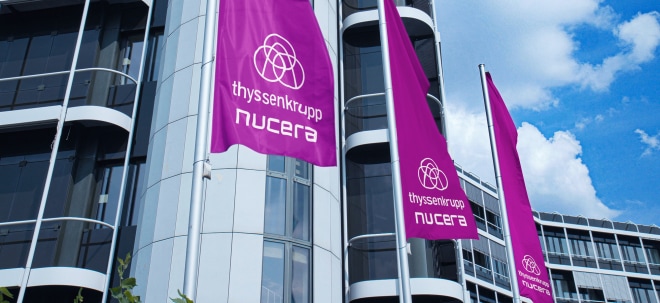Nanoscope Therapeutics Announces Durable 3-Year Vision Improvements from REMAIN Study of MCO-010 in Retinitis Pigmentosa
- REMAIN results showed sustained, 3-line vision gains vs baseline through 152 weeks for MCO-010 in patients having severe vision loss from retinitis pigmentosa, and a favorable safety profile
- The data form the clinical basis of a rolling Biologics License Application, initiated in June 2025, with the potential to be the first FDA-approved optogenetic therapy
- MCO platform demonstrates potential as a one-time, disease agnostic optogenetic therapy for patients having severe vision loss
DALLAS, Oct. 22, 2025 /PRNewswire/ -- Nanoscope Therapeutics Inc., a biotechnology company committed to developing and commercializing novel disease-agnostic therapies for patients with photoreceptor loss and vision impairment due to retinal degeneration, today announced positive three-year follow-up data from the REMAIN study, the long-term extension of the Phase 2b/3 RESTORE trial evaluating MCO-010, the Company's proprietary optogenetic therapy for patients with retinitis pigmentosa (RP).
The REMAIN results demonstrated durable and clinically meaningful vision improvements following a single intravitreal injection of MCO-010, with a favorable safety and tolerability profile maintained through three years.
"The sustained visual gains demonstrated over three years are truly remarkable for this population," said Allen C. Ho, MD, Director of Retina Research at Wills Eye Hospital and Chief Medical Advisor for Nanoscope. "These patients typically lose about 1.5 lines of vision every five years and often hit legal blindness as early as age 20. The ability to not just slow loss but restore visual function for several years represents a significant therapeutic advance."
Key Findings from the 152-Week REMAIN Long-Term Follow Up Study:
- Durable Efficacy: Patients maintained an average Best Corrected Visual Acuity (BCVA) gain from baseline of approximately 0.3 LogMAR (equivalent to three lines or 15 letters on a standard ETDRS vision chart), through Week 152. BCVA-Area Under the Curve (AUC) profiles across both RESTORE and REMAIN show fivefold greater vision gains compared to sham treatment.
- Favorable Safety: No serious ocular adverse events were reported among treated patients.
- Long-Term Tolerability: Only one mild case of inflammation required topical steroids; 14 of 15 treated patients required no ongoing inflammation management at Week 152.
"These long-term results underscore the lasting impact of MCO-010 in patients who currently have no treatment options," said Sulagna Bhattacharya, CEO of Nanoscope Therapeutics. "As we advance our rolling Biologics License Application (BLA) with the FDA for MCO-010 in RP, we are actively preparing for a potential commercial launch of what could become the first approved optogenetic therapy for retinal disease. The treatment durability observed in REMAIN also highlights the potential of our platform as a one-time therapy for a broad range of retinal degenerative conditions."
The REMAIN study results were recently presented at several leading ophthalmology conferences, including:
- American Academy of Ophthalmology (AAO) 2025 Annual Meeting (Oct 18–20, 2025) – Allen C. Ho, MD, Wills Eye Hospital, Philadelphia, PA
- Retina Society's 58th Annual Scientific Meeting (Sept 10-13, 2025) – Christine Kay, MD, Vitreo Retinal Associates, Gainesville, FL
- 25TH EURETINA Congress (Sept 4-7, 2025) – Jordi Mones, MD, PhD, Institut de la Màcula, Barcelona, Spain
About the MCO Platform
MCO is a one-time, in-office, intravitreal disease-agnostic therapy platform designed to restore vision in patients with photoreceptor degeneration, including retinitis pigmentosa (RP), Stargardt disease (SD), and geographic atrophy (GA). By activating highly dense bipolar retinal cells to become light sensitive, MCO utilizes the remaining visual circuitry following photoreceptor death. MCO treatment does not require genetic testing, invasive surgery, or repeat dosing, enabling broad patient applicability within existing retina office workflows.
MCO-010 has been granted Fast Track and Orphan Drug designation by the U.S. FDA, and a rolling Biologics License Application (BLA) for retinitis pigmentosa is currently underway. The European Medicines Agencyhas granted MCO-010 five Orphan designations across a wide spectrum of retinal degenerations involving photoreceptor loss.
About Nanoscope Therapeutics
Nanoscope Therapeutics is developing disease-agnostic, vision-restoring optogenetic therapy for millions of patients blinded by retinal degenerative diseases. Following positive results from the RESTORE Phase 2b/3 multicenter, randomized, double-masked, sham-controlled clinical trial for retinitis pigmentosa (RP) (NCT04945772), a rolling BLA submission to the FDA has been initiated. If approved, MCO-010 has the potential to be the standard of care for RP patients, administered as a one-time, in-office injection without the need for genetic testing. The company has also shown promising results in the STARLIGHT Phase 2 clinical trial of MCO-010 in Stargardt disease (SD) (NCT05417126) and plans to initiate a Phase 3 registrational trial in 2025. MCO-010 has received FDA Fast Track and Orphan Drug designations for both RP and SD, along with RMAT designation for SD, and EMA Orphan designations to cover non-syndromic and syndromic rod- and cone-dominant dystrophies, as well as macular dystrophies. A Phase 2 program for MCO in geographic atrophy (GA) is expected to start by the end of 2025. Other IND-ready programs include Leber congenital amaurosis (LCA).
Contact:
Nanoscope Therapeutics, Inc.
+1 (817) 857-1186
PR@nanostherapeutics.com
![]() View original content to download multimedia:https://www.prnewswire.com/news-releases/nanoscope-therapeutics-announces-durable-3-year-vision-improvements-from-remain-study-of-mco-010-in-retinitis-pigmentosa-302590734.html
View original content to download multimedia:https://www.prnewswire.com/news-releases/nanoscope-therapeutics-announces-durable-3-year-vision-improvements-from-remain-study-of-mco-010-in-retinitis-pigmentosa-302590734.html
SOURCE Nanoscope Therapeutics


